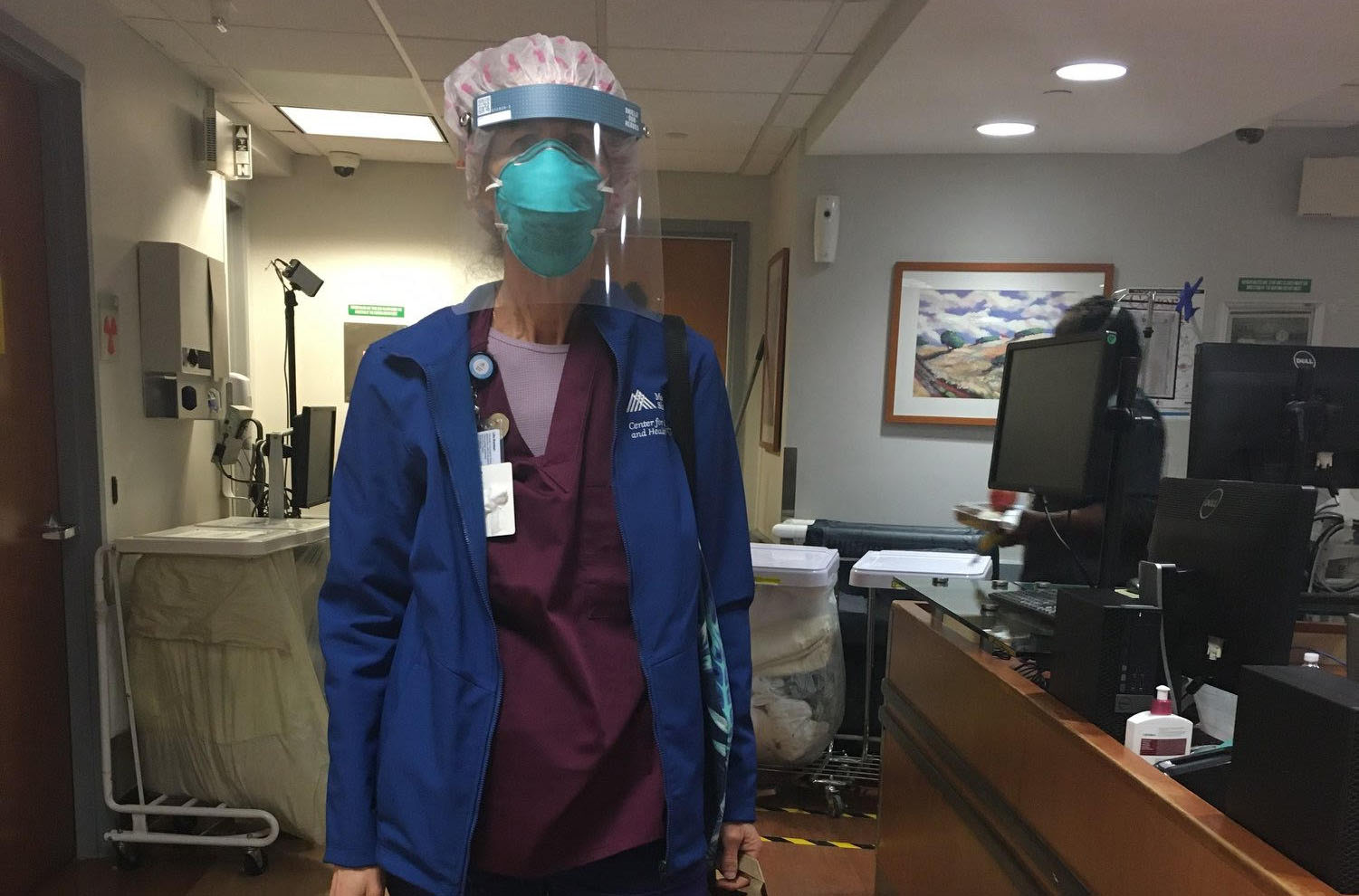Our frontline health workers are the first responders in the fight against the coronavirus. These health professionals will also be our guides and community allies on the road to our full recovery as a healthy nation. Thrive Global is sharing their inspiring stories.
It’s hard to explain to people what it has been like to be the lone chaplain in one of the hardest hit COVID hospitals in the country. Not because I am inarticulate, but because the sheer numbers are staggering. People don’t believe me when I tell them that within a few days we went from having no coronavirus cases at all in our hospital to having double our normal census, with tents set up outside the emergency department.
The rapidity of deaths is still incomprehensible to us. Beloved staff members who walked into the hospital on Friday had passed away by Sunday — we are heartbroken in ways I haven’t begun to deal with yet. As the lone chaplain in the hospital I hold in faith and prayer for our staff who are scared and isolated from their families. Some didn’t isolate fast enough and their family members came through our E.R. and some never came out.
I have asked myself over and over, if the only coin I had in my purse was my profound faith, would it be enough?
Enough for our staff who were scared and confused and angry and did I mention scared out of their minds?
Enough for our patients, many of whom I spoke to on my iPhone on the other side of the door because it didn’t make sense for me to go through 10 or 12 sets of PPE a day when it was a precious commodity.
In the early days of the COVID-19 outbreak, I would wake up in a sweat at 2 a.m. because I cannot give meds, I cannot transport a patient to X-ray, I cannot diagnose, prescribe, feed or heal our patients. But I’ve tried to adapt to these unique circumstances and help our patients and hospital staff in any way I can.
I learned to do a bedside memorial outside the patients’ rooms with their family on FaceTime, often chanting the only prayers and memorial that the new COVID burials laws will allow the families to have. If the patient had no family I did the memorial alone so that each person would have the dignity of having their name written in the book of life and that name being sung to God.
I now get up at 4 a.m. and come in at 6:00 a.m. so I can be there for the night staff — an underserved group of heroes in the best of times.
I also join the morning nurse huddles for much wanted (and needed) prayer.
I walk slowly up and down every single solitary unit and office in the entire hospital for days and days on end so our staff have a safe and sacred place to bring their fear, their anger, their tears, their faith, their compassion, their loving, their fellowship and their hopes.
I came in 23 straight days in a row and I will not ever get paid for my unscheduled time. Not really the point, is it? No one becomes a minister in their church and a hospital chaplain for the overtime pay. We do it to offer faith, but also to be able to experience the best part of ourselves and those we work with… whom we LOVE.
My friends raised money and we were able to buy lunch for almost every staff member of the hospital. A few times. (That was glorious, actually!)
I learned silly jokes, I sang out loud in my extremely off-key voice, making staff burst out laughing. I’ve been told not to quit my day job.
I normalize terror, confusion, and anger and remind them they wouldn’t be human if they weren’t experiencing it to some degree — and then I let them do the same for me.
Through it all, I try to stay resilient.
I walk and listen to music I know super well. I don’t mean I walk around the block. I walk from the hospital in Queens to my apartment in Manhattan. I walk the entire length of Central Park and then back home. I sing out loud as I go. I do this to heal.
I have a very small group of church friends I talk to when I am not my best self and I trust them not to judge me.
I pray and meditate every single day without exception.
But that’s not new. That’s a 35-year practice, and believe me when I tell you if there was ever a time to take it out for a test drive, it’s now.
Practicing mindfulness and prayer and meditation has given me a foundation of strength and grace I do not see I could ever have any other way.
I go to bed by 9, so I can get uninterrupted sleep. Between my day job and coming home to cook and care for my mother — I am her sole caretaker — it requires stamina. And COVID or no COVID, this is not a sprint. It’s not even a marathon. It’s my life.
Click here for information about how Thrive Global is supporting our healthcare workers on the front lines of the coronavirus pandemic, and find out how you can support the cause by donating to #FirstRespondersFirst.
If you’re a first responder and want to share your story, email us at [email protected]. Please note, a Thrive editor may contact you to hear more about your story, and your submission may be edited for length or clarity before publication. By submitting your story, video, or pictures, you are agreeing for Thrive to publish your submission(s) if selected, and agreeing to the Thrive Global Privacy Policy. You can find more guidelines here.


